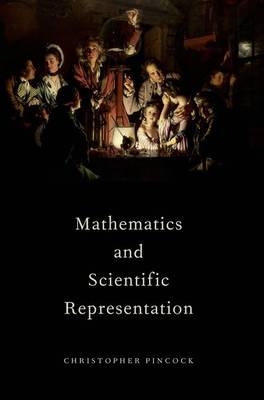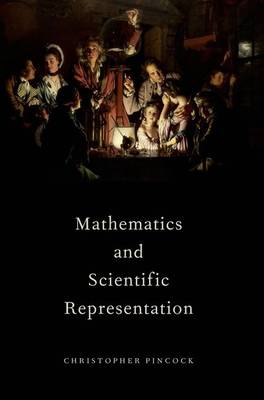
Je cadeautjes zeker op tijd in huis hebben voor de feestdagen? Kom langs in onze winkels en vind het perfecte geschenk!
- Afhalen na 1 uur in een winkel met voorraad
- Gratis thuislevering in België vanaf € 30
- Ruim aanbod met 7 miljoen producten
Je cadeautjes zeker op tijd in huis hebben voor de feestdagen? Kom langs in onze winkels en vind het perfecte geschenk!
- Afhalen na 1 uur in een winkel met voorraad
- Gratis thuislevering in België vanaf € 30
- Ruim aanbod met 7 miljoen producten
Zoeken
Omschrijving
Mathematics plays a central role in much of contemporary science, but philosophers have struggled to understand what this role is or how significant it might be for mathematics and science. In this book Christopher Pincock tackles this perennial question in a new way by asking how mathematics contributes to the success of our best scientific representations. In the first part of the book this question is posed and sharpened using a proposal for how we can determine the content of a scientific representation. Several different sorts of contributions from mathematics are then articulated. Pincock argues that each contribution can be understood as broadly epistemic, so that what mathematics ultimately contributes to science is best connected with our scientific knowledge.
In the second part of the book, Pincock critically evaluates alternative approaches to the role of mathematics in science. These include the potential benefits for scientific discovery and scientific explanation. A major focus of this part of the book is the indispensability argument for mathematical platonism. Using the results of part one, Pincock argues that this argument can at best support a weak form of realism about the truth-value of the statements of mathematics. The book concludes with a chapter on pure mathematics and the remaining options for making sense of its interpretation and epistemology.
Thoroughly grounded in case studies drawn from scientific practice, this book aims to bring together current debates in both the philosophy of mathematics and the philosophy of science and to demonstrate the philosophical importance of applications of mathematics.
In the second part of the book, Pincock critically evaluates alternative approaches to the role of mathematics in science. These include the potential benefits for scientific discovery and scientific explanation. A major focus of this part of the book is the indispensability argument for mathematical platonism. Using the results of part one, Pincock argues that this argument can at best support a weak form of realism about the truth-value of the statements of mathematics. The book concludes with a chapter on pure mathematics and the remaining options for making sense of its interpretation and epistemology.
Thoroughly grounded in case studies drawn from scientific practice, this book aims to bring together current debates in both the philosophy of mathematics and the philosophy of science and to demonstrate the philosophical importance of applications of mathematics.
Specificaties
Betrokkenen
- Auteur(s):
- Uitgeverij:
Inhoud
- Aantal bladzijden:
- 352
- Taal:
- Engels
- Reeks:
Eigenschappen
- Productcode (EAN):
- 9780190201395
- Verschijningsdatum:
- 1/12/2014
- Uitvoering:
- Paperback
- Formaat:
- Trade paperback (VS)
- Afmetingen:
- 171 mm x 231 mm
- Gewicht:
- 503 g

Alleen bij Standaard Boekhandel
+ 180 punten op je klantenkaart van Standaard Boekhandel
Beoordelingen
We publiceren alleen reviews die voldoen aan de voorwaarden voor reviews. Bekijk onze voorwaarden voor reviews.









